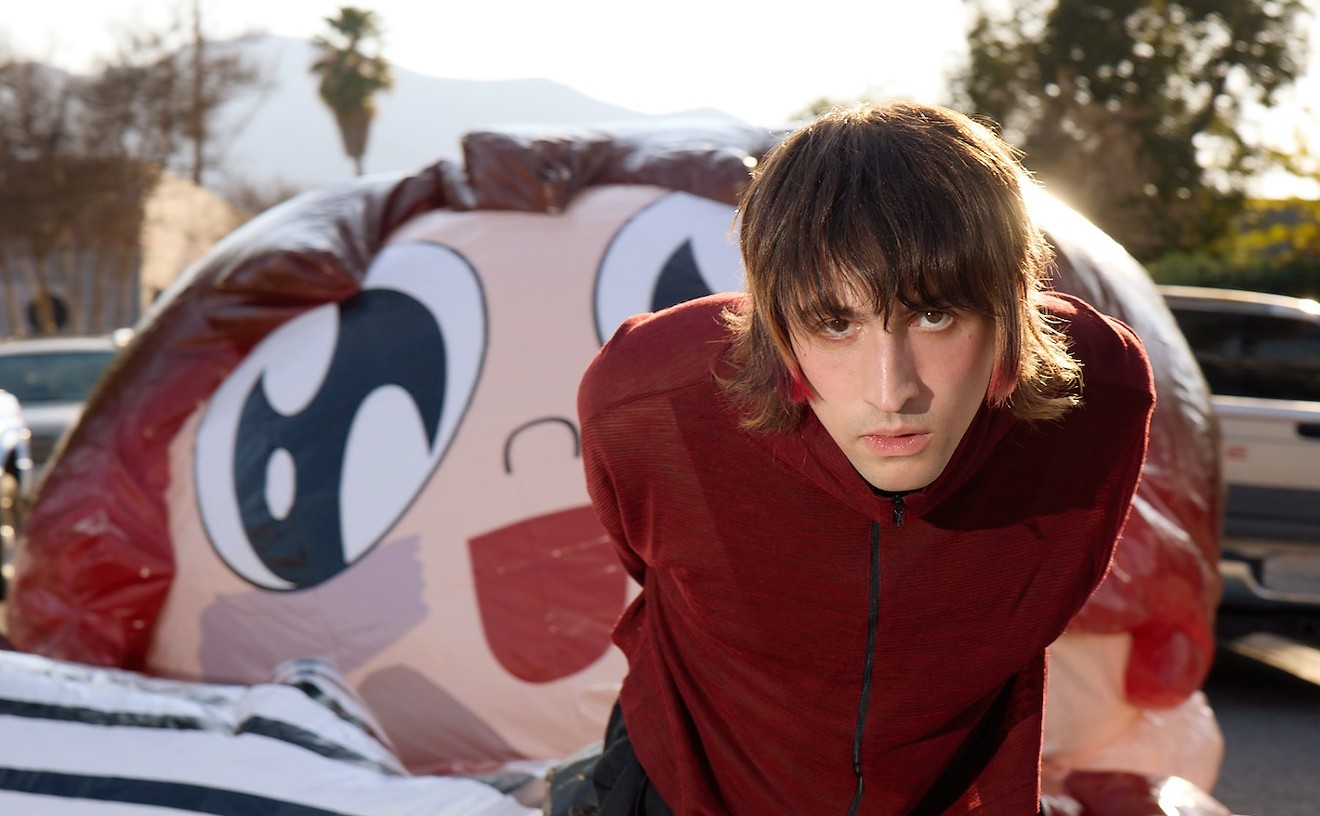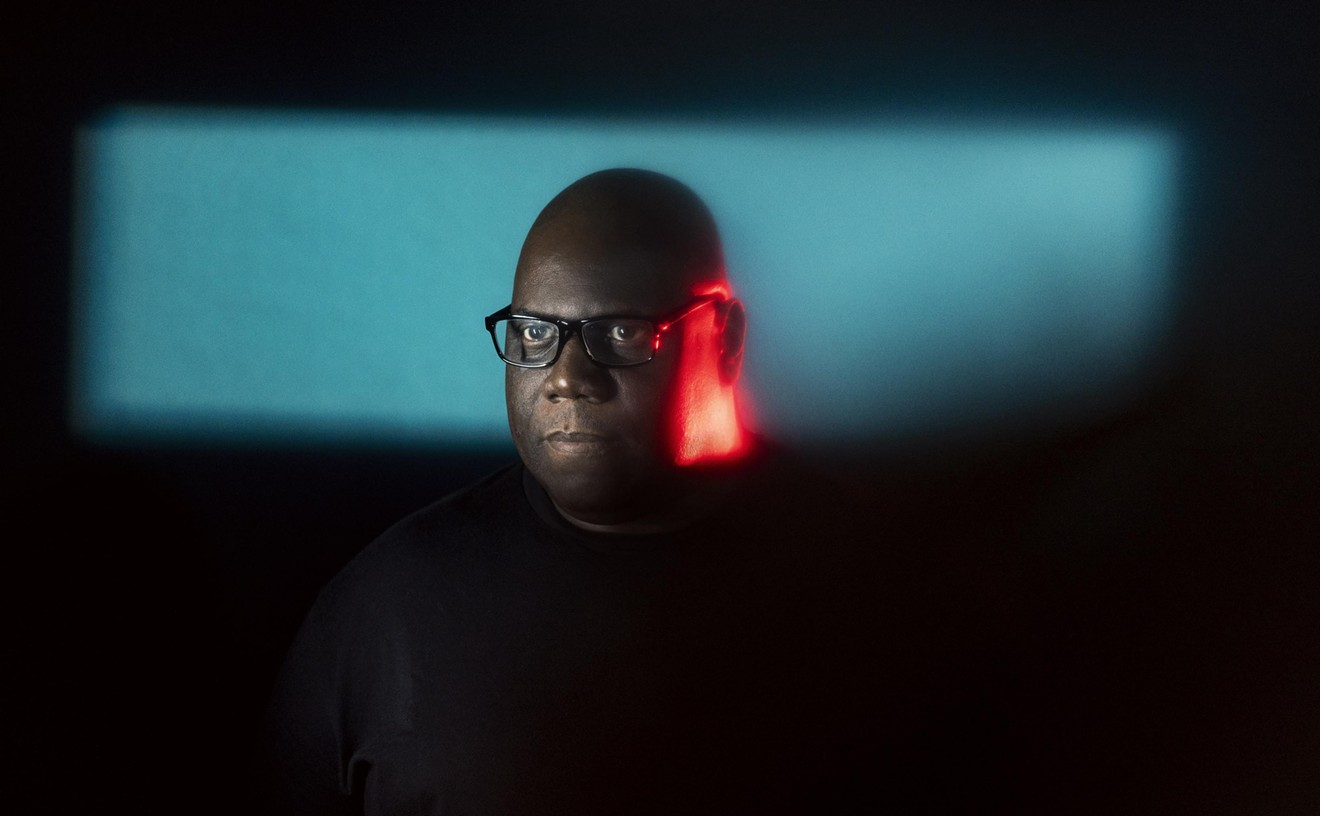When Bryan "Birdman" Williams walks through the doors of North Miami's Hit Factory Studios on a recent Friday night, he cuts a commanding yet calm figure. The spray of diamonds dripping from his neck, wrist, and ears is almost blinding, but then there's his understated swagger. Williams exudes successful music-exec bravado, but not in cocksure P. Diddy fashion. Though Birdman is one of hip-hop's most underrated players, his quiet, confident demeanor demands respect.
After his 18-year career — as cofounder, co-CEO, and recording artist — with originally New Orleans-based, millions-selling Cash Money Records, it'd be a crime to give him anything less. And you don't have to hear the words fall from his platinum-and-diamond-flecked mouth to believe that. Just check his resumé.
As the head of one of hip-hop's last standing triple-crown crews, Birdman is the brains behind countless Dirty South classics. Take the Hot Boys' timeless compilation Guerrilla Warfare, Juvenile's quadruple-platinum 400 Degreez, a myriad of Lil Wayne albums, and his own Grammy-nominated hits. He has gone by several monikers, like Baby and the #1 Stunna, and now, strictly, Birdman. But you can just call him one of the last men standing in a game where longevity is promised to no one.
Sure, the Master P-helmed No Limit Records and its artists might have given the world its first taste of N.O. hip-hop, but their current situation begs the question: Where are they now? Meanwhile, Birdman and his camp are living in Miami. He is what the mainstream press calls a refugee; Hurricane Katrina forced him — along with his unofficially adopted son, rap superstar Lil Wayne — to abandon his hometown. But despite the distractions of his new turf, he says he can most often be found in one of his private rooms at the Hit Factory.
"I ain't come out here to get fucked up. I live here, it's cool, but, you know, this my job," says Birdman. "You won't see me in the clubs; you'll find me at the studio, period. Not for you, for me, 'cause this what I love."
He sits on an ebony leather couch, tattoos running up and down his arms, sprinkled onto his face and extending to his head. Birdman's birthplace is undeniable as he spits the N'awlins regional patois. Almost every sentence is peppered with drawling ya heard me's, bebe's, and believe that's. And though he has yet to adopt Miami slanguage, he says the city has touched him where it counts, his music.
"Miami changed everything," he says. "It's a whole 'nother vibe, a whole different swag. We still got our New Orleans swag, but you know we come from bricks, and from bricks to that type of water, the palm trees, the beautiful life, it's beautiful."
Not that shit wasn't pretty when the music was all po'boys and crawfish. Since its birth in 1991, Cash Money has become legendary in the rap game. Birdman and his brother, label cofounder and co-CEO Ronald "Slim" Williams, took a Joe Jackson approach with a group of younguns who might have never gotten a chance with traditional industry bigwigs. According to Birdman, the attitude of artists like Lil Wayne and his peers was "Either y'all muhfuckas gonna understand us, or fuck it, we go back to doing what we was doing." But the latter never happened. From the debut of BG's Chopper City, to the resuscitation of the career of legendary blue-eyed soulstress Teena Marie, all the way up to last year's Like Father, Like Son (a certified gold collaboration by Birdman and Wayne), the crew never stopped popping off the hits.
After inking a partnership deal with Universal Records in 1998, success was inevitable and platinum and double-platinum records ensued. But the Cash Money crew wasn't simply adding hits to its catalogue; it was making rap history, inserting new phrases such as bling bling and back that azz up into the English language.
The demises of the seemingly unshakable Roc-A-Fella, N.W.A., and even Junior Mafia have proven that no rap crew is lucky enough to dodge internal turmoil. And the Cash Money Millionaires were no different. Around 2001, original members BG, Turk, and Juvenile all jumped ship amid allegations of financial mishandling. Birdman was handed the blame. But several years later, it seems there's no love lost on his part.
"I'ma tell ya this here, bebe. Hopefully I'ma put that shit back together," he says. "And I'll do it just to show that you know a nigga ain't trippin'. I'm a hustla, I'm grown, you know. I been doing this. They need a nigga, ya heard me. They out in that world drownin' like a mothafucka, ya heard me."
Amid the tumult, artists breezed on and off the Cash Money roster and the lineup thinned out considerably. Birdman and Mannie Fresh, the crew's in-house producer and the architect of the distinctive Cash Money sound, made an executive decision and formed the Big Tymers. Fans loved hits like "Get Your Roll On" and "Still Fly," but they were panned by critics, who accused them of lacking lyrical content and variation.
In a move that's rare in the unabashedly arrogant culture of hip-hop, Birdman admits he was aware of his flaws. "I felt like I couldn't rap, and I was around these li'l niggas and I felt like they could bag me up with rappin'," he says. "The only thing to do was for me to shine. I felt like I needed to be a jewelry nigga, a car nigga, to stand out from everybody." He and Fresh flaunted megamansions and fleets of cars on MTV's celebrity pissing contest, Cribs, but when Fresh departed in 2005, claiming still-unsubstantiated monetary misconduct, once again Birdman was left holding the bag. But to a guy who has consistently proven his skill of making cake out of shit, change is always good.
"When Fresh wasn't no longer producing for us, I think it was a gift and a curse. The curse is 'cause I never would have wanted it to be like that, 'cause I came up with him. But the gift was once I let the shit go, it gave us an opportunity to start molding our talent," he says. "Now we get to pick what we like and what we think people like."
Since then, "we" has meant Birdman and Lil Wayne, the last original Hot Boy standing. Wayne was never a Lil like Bowwow or Romeo. He was always a manchild, even at the age of 11, when Birdman took him under his wing. And Birdman insists he always knew Wayne would be a star.
"Wayne never stopped," he explains. "He take it like a professional; he never stop working and that's why he where he is. And besides that, the li'l nigga supergifted, extra-smart, talented like a mothafucka. You know it's possible that they can have another Wayne come out, but what he 'bout to do is a miracle for us to see. We was fortunate to grow up on Tupac, but he died young. This shit Wayne got bigger that. Bigger than Tupac, bigger than Biggie and Jay-Z. It's crazy."
In 1999, when Wayne went on record and told grown men to "separate me from the fake" and that they "better vacate the premises," it seemed he was issuing a call to foes in the street. But looking back, it was clear that Wayne's statement was prophetic and that he was talking to cats in the game right now. Currently his career is unparalleled. Now 13 years in the business without having fizzled out, he boasts a voice that is flooding Top 40 radio stations as well as tracks featuring him alongside Beyoncé and Britney. And he still maintains the underground cred that made him famous.
It has served as validation during the more fraught moments of Birdman's career thus far. "I never folded. I never cracked under the pressure," he explains. "I never thought about doing nothing else. I just kept hustling and it paid off. I ain't never fall off my rock." He's absolute in his answer, but as he continues, his bravado seems to fade and he becomes subdued: "Through my experience in life, you got to lose to gain. That's one of my theories."
With the release of his latest album, 5 Star, slated for release December 18, and his contract with Universal up at the end of the year, more changes are undoubtedly on the horizon. But one thing he promises won't change is his presence in the industry. "This is our way of life, so this shit ain't goin' nowhere. We want it so bad, so we gonna go real hard regardless."










